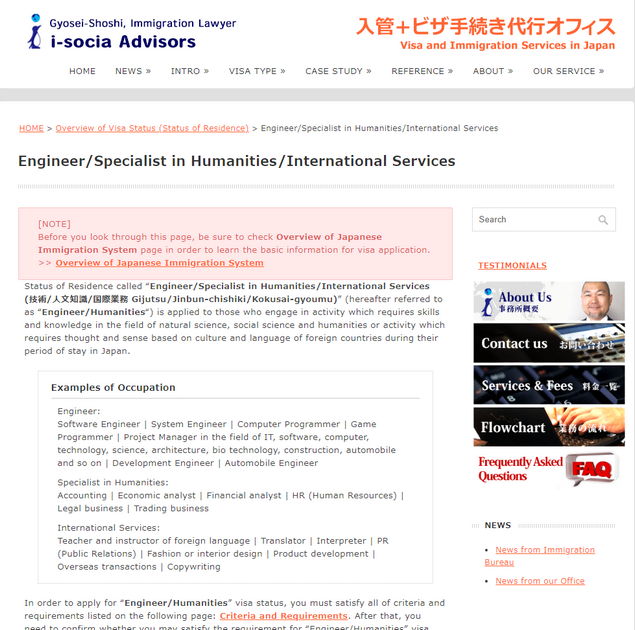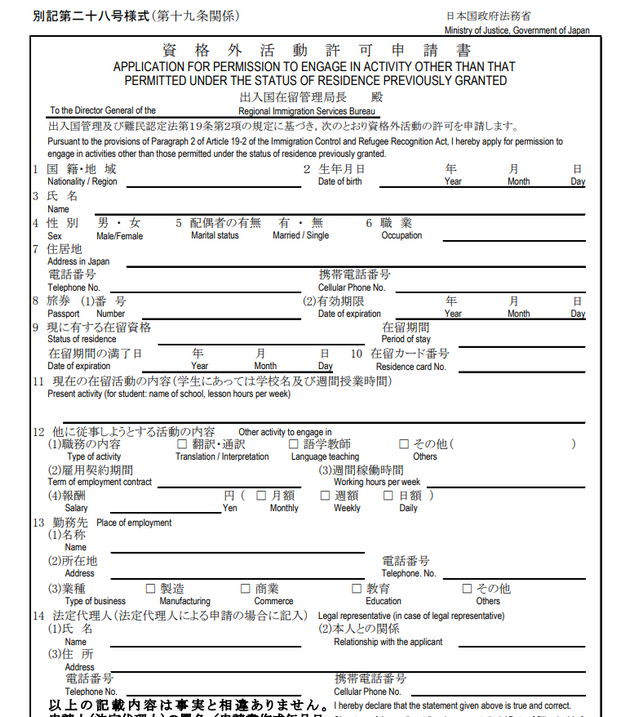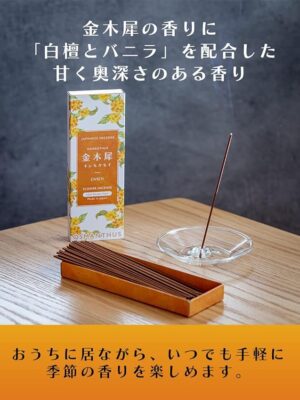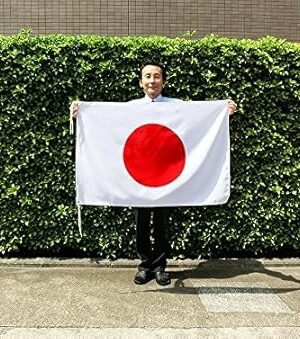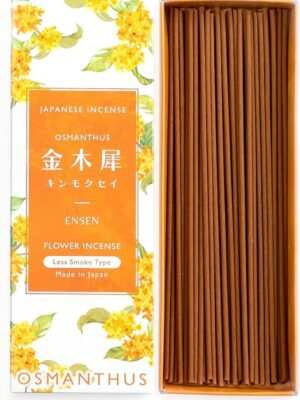Tip #5 Work on the Side in Japan
Share this Post
Warning
This is for informational and entertainment purposes only and should not be confused with the legal advice from a professional. If you have any real troubles with immigration or taxes, go seek council from an immigration or tax attorney immediately!Table of Contents
- 1. Work on the Side in Japan: Specialist in Humanities visa type
- 2. Engineering / Technical Expert / Specialist in Humanities / International-Services Visa as of April 2019
- 2.1 Application for Permission to Engage in Activity Other Than That Permitted Under the Status of Residence Previously Granted
- 2.2 When a Permit is Not Necessary
- 2.3 Informal Tutoring
WhenI first lived in Kyoto I would go to the Kyoto International Community House mostly to use the free internet (it might have been discontinued by now) and take some classes on Japanese culture like Japanese language, Tea Ceremony, and Ikebana (Japanese style flower arrangement). While there I would notice some people would be conducting a kind of conversation lesson. These were usually young foreigners with Australian or New Zealander accents chatting with a group of older Japanese ladies. I was looking to make some money and teaching these “English Classes” seemed a good way to do it. One day while looking at apartment advertisements there I started a conversation with someone that was doing that to make money exclusively. It turns out it is a much harder life than I first expected. Yes the money was good, but you needed several such gigs a day to sustain you and pay for rent and clients could be both far between and fickle. It also seemed that the guy that was doing it was from Australia on a Working Holiday visa. I was just a tourist, so shouldn’t be doing any work for money until I got a proper Work visa such as the Specialist in Humanities visa. It turned out that there wasn’t a single overall Work visa as much as a variety of Work visas with their own rights for what work I could do and for whom. It seems that legally self-employed teaching English was not something I should be doing under an Specialist in Humanities visa (the main one for Assistant Language Teacher (ALT) work). While working in Hiroshima I got an offer from my company’s client contact at the Board of Education to teach a Saturday class for a kid’s club. I turned it down because I wanted my Saturday’s free and only my company can actually tell me what to do. But surely this is a strange situation, this man was very experienced and surely knew that this was a little shady. Then I got a couple of offers from various English clubs in the villages where I worked. Their former conversation partner had left the country and they wanted me to fill in. The law was on the books, I shouldn’t be doing this side work, but it seemed most Japanese people either didn’t know about it or had decided that it was OK to ignore it. So what is the written Rule and what is the Reality?
Engineering / Technical Expert / Specialist in Humanities / International-Services Visa as of April 2019
If you come to Japan as a language teacher you will have the visa type usually as “Specialist in Humanities” and you can be employed at private language schools known as “eikaiwas” as well as public schools beneath the university level. There is an Instructor visa type, but it is more focused on government franchised institutions. The Engineering/Technical Expert part of this visa type is to enable professionals with a high degree of knowledge in engineering and computer science to also work in Japan. The International Services sub-type of this visa is for people who engage in trade, translation, interpreting, advertising, or a trader or dealer in the financial industry.Application for Permission to Engage in Activity Other Than That Permitted Under the Status of Residence Previously Granted
You want to make more money by working a part time job on the side as well as your regular work for which you have reveived the Engineering/Technical Expert/Specialist in Humanities/International Services visa. This is done legally by applying to do extra work under your original visa. You can begin the application procedure by downloading the Application for Permission to Engage in Activity Other Than That Permitted Under the Status of Residence Previously Granted from the Japanese Ministry of Justice website current as of April 2019. Fill in the application and provide your Certificate of Alien Registration (your national id or Resident card), a copy of your contract with the company you are currently working for or student id if your are a student at a Japanese University, and passport to the local regional immigration bureau.What Can You Do With the Specialist in Humanities Visa Work Permit
Some companies will handle a lot of this for you, so check with your Human Resources office to see how the want to handle things. It seemes that the total work time you are allowed for this extra work is not more than 28 hours per week (though not full time, it certainly will feel like it if you work for a foreign language school!). The processing time is about one week and there is no fee to apply.
What You Cannot Do On the Side with the Specialist in Humanities Visa Work Permit
This visa type does not allow the holder to work in Adult Services. So if it was your dream to work as a prostitute or to help salarymen get drunk by sitting with them as they drink or work in a mahjong parlor (???) then you are out of luck. The adult film industry is also still off limits. Also, this visa is not for people who are on a temporary visitor visa. If you flew in and applied for this without already having a job that provided you with a work visa, then they will reject you really fast.When a Permit is Not Necessary
Extraodinary Circumstances such as being given money for a TV appearance or giving a lecture at a lecture meeting are examples of times when can be paid without needing to alter your Specialist in Humanities Visa. For people who have lived here long enough this can include Speech Competitions etc not setup by your company. It seems that these are rather one off deals, so probably wouldn’t include classes where you meet weekly and you basically act as a tutor.Informal Tutoring
It seems that keeping on the right side of the law by applying for the Permit to Engage in Activities Other than that Permitted under the Status of Residence Previously Granted is the best way to go even if you are not working for an eikaiwa if you plan on eventually applying for Permanent Residency or Japanese Citizenship. If caught working on the side without permission, then your chances for approval for very long term stay would basically be over. However, if you have a some what rebelious spirit and don’t intend on staying in Japan for a long time, then you can try your luck and see how things go.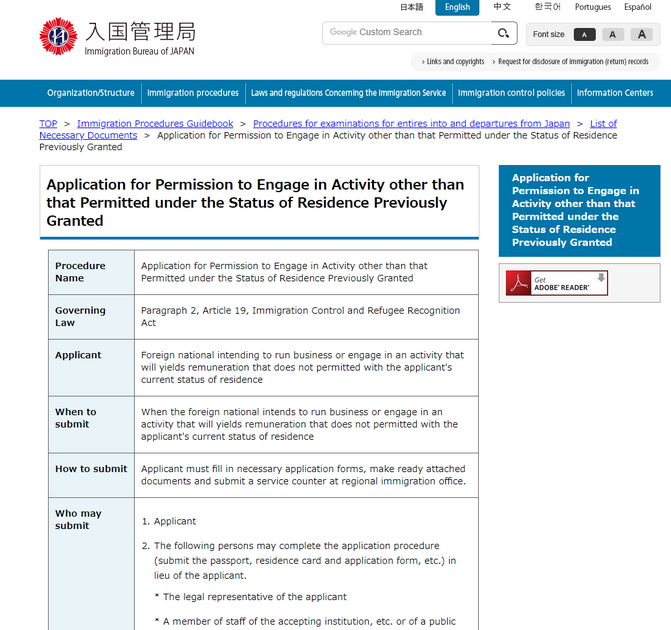
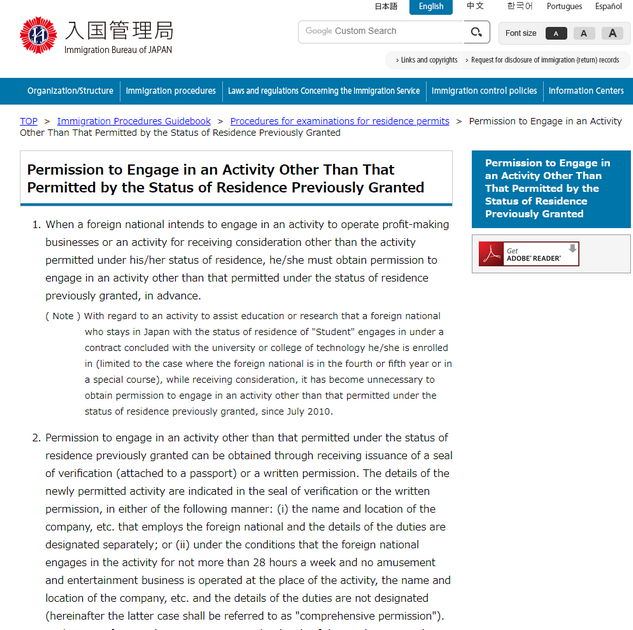
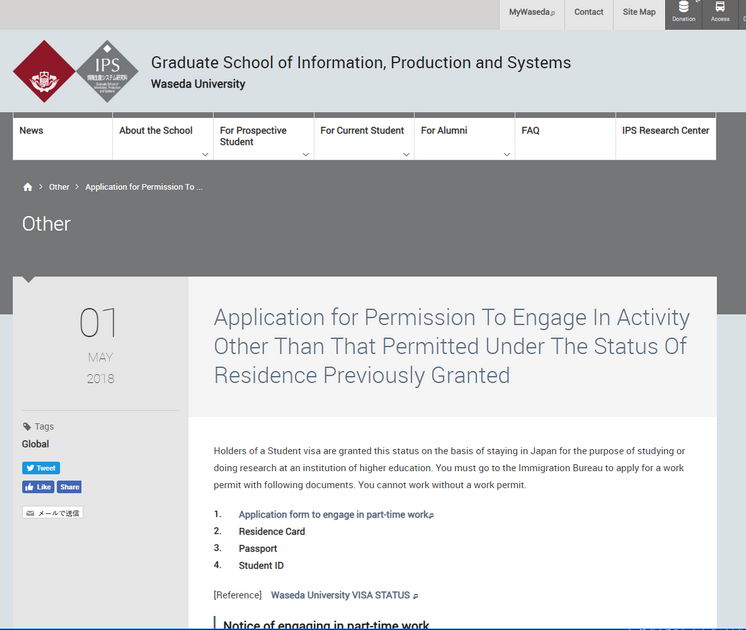
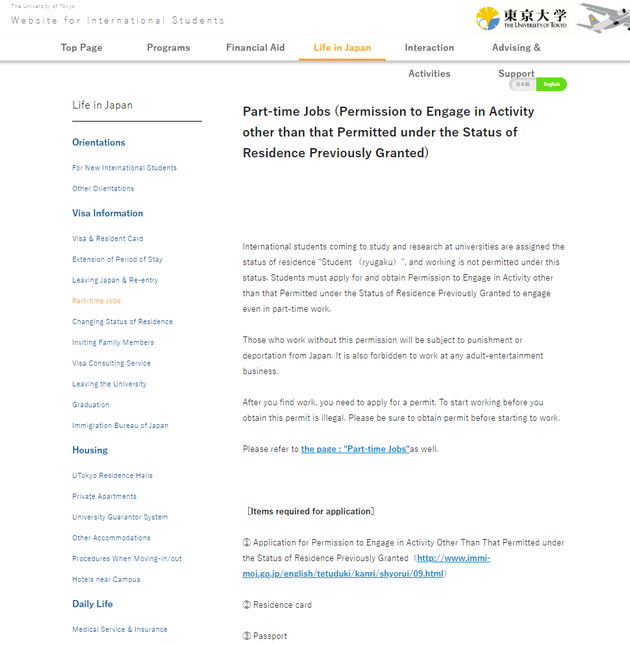
If these articles have helped you in any way please feel free to click here to help support us by making a donation on PayPal
Buy me a coffee, or two, or three ;-D

